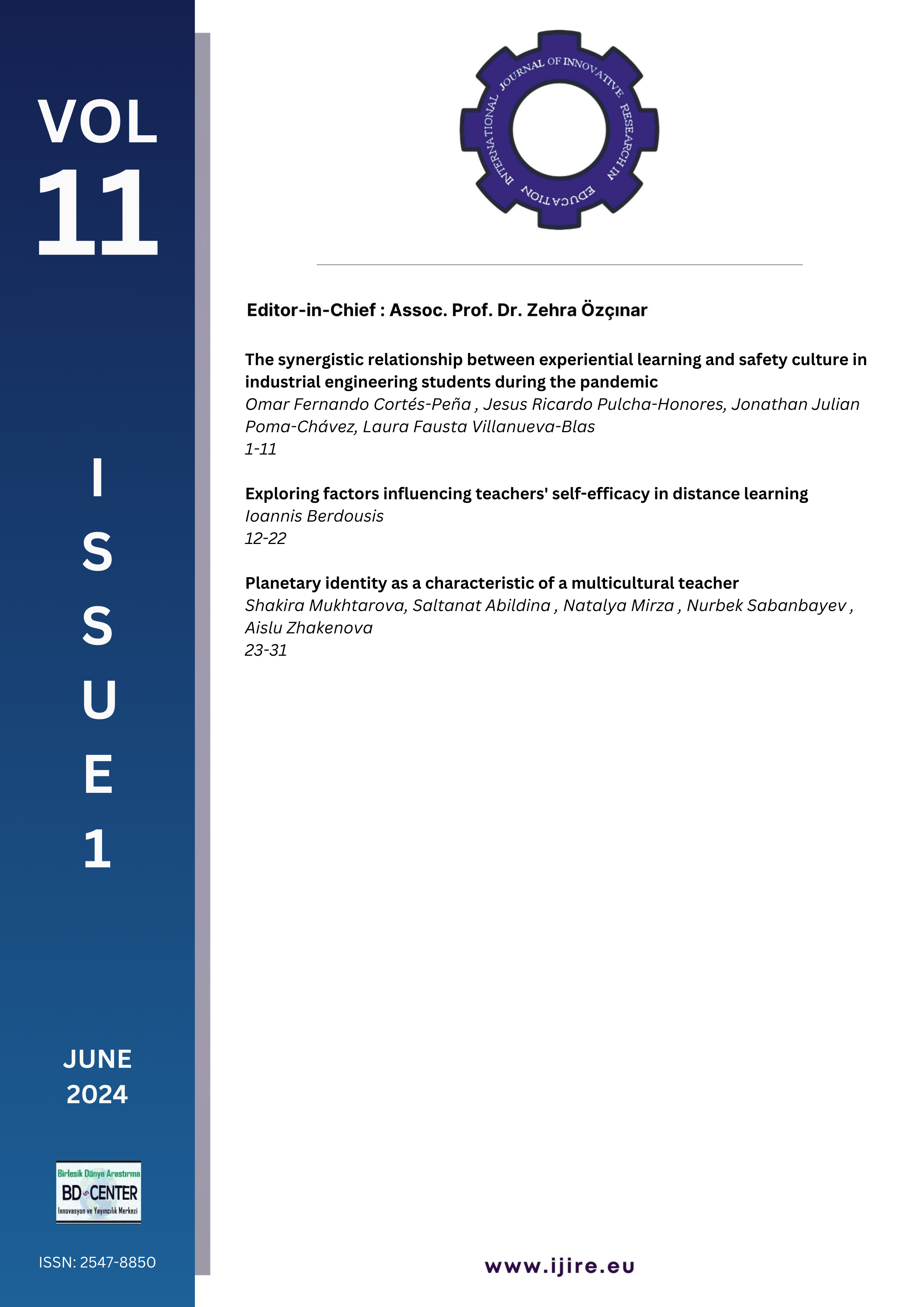The synergistic relationship between experiential learning and safety culture in industrial engineering students during the pandemic
Main Article Content
Abstract
The objective of this research was to analyze how experiential learning is synergistically related to the development of a safety culture, under the special conditions of the COVID-19 pandemic in university students. The methodological approach was focused on a triangulated mixed design perspective, which allows integration of the qualitative and quantitative results derived from the educational experience of the pilot implementation of the model with a sample of students of the VII cycle of the Industrial Engineering program. The results obtained showed the relevance of the application of experiential learning to achieve the development of a safety culture in students. It was observed that active experimentation was the experiential learning factor that was most closely related to training in safety and skills. In this way, experiential learning through dynamism and experiential experiences manages to generate a safety culture. In conclusion, experiential learning manages to be an adequate strategy for the development of a culture of safety in students.
Keywords: Experiential learning; industrial engineering; pandemic; risks; safety culture.
Downloads
Article Details

This work is licensed under a Creative Commons Attribution 4.0 International License.
The International Journal of Innovative Research in Education is an Open Access Journal. All articles can be downloaded free of charge. Articles published in the Journal are Open-Access articles distributed under CC-BY license [Attribution 4.0 International (CC BY 4.0)].
Birlesik Dunya Yenilik Arastirma ve Yayincilik Merkezi (BD-Center) is a gold open access publisher. At the point of publication, all articles from our portfolio of journals are immediately and permanently accessible online free of charge. BD-Center articles are published under the CC-BY license [Attribution 4.0 International (CC BY 4.0)], which permits unrestricted use, distribution, and reproduction in any medium, provided the original authors and the source are credited.
